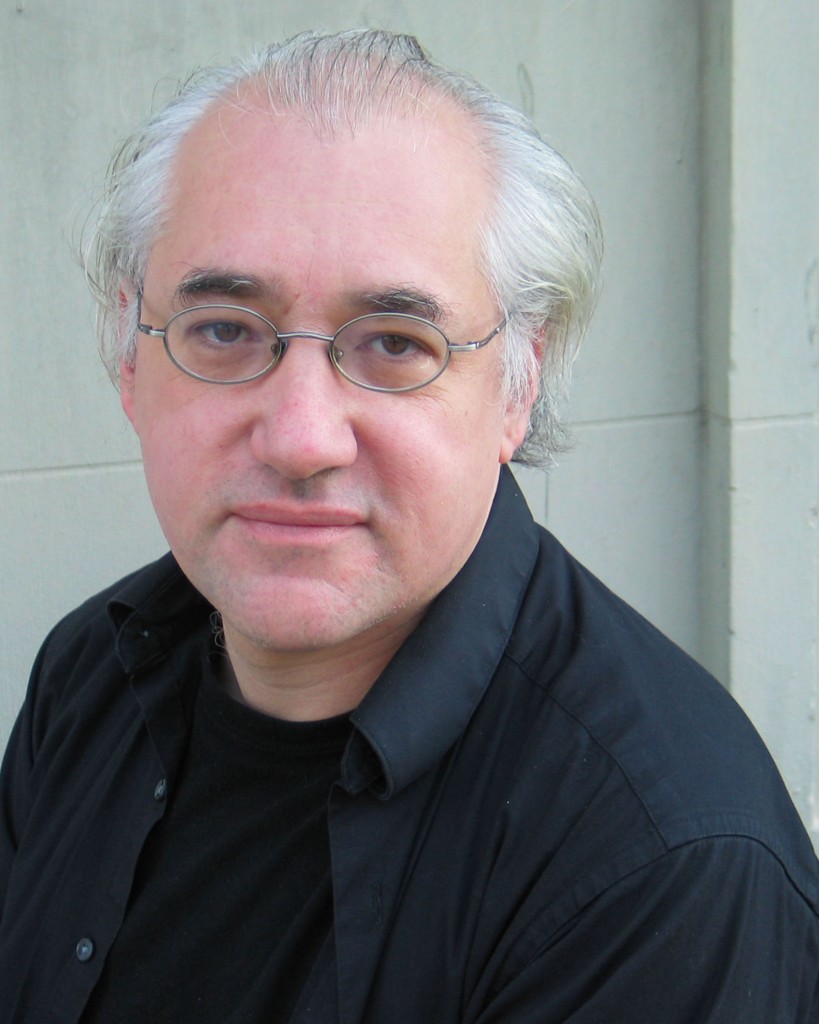Currier premiere provides the highlight in Chamber Music Society’s contemporary program

Sebastian Currier’s “Parallel Worlds” had its New York debut Thursday night, performed by the Chamber Music Society of Lincoln Center.
Concerts of new music—not just premieres—are so predominately tonal these days that the period of atonality and high-serialism that extended through the middle of the 20th century seems increasingly aberrant and ahistorical. The impression is that everyone is working with diatonic harmony, including the dissonance that allows, and shaping music with the kind of formal procedures that have too much utility to ever go permanently out of style.
So it was at Thursday night’s Chamber Music Society of Lincoln Center program, held within the glass walls of the Kaplan Penthouse, ten stories above the occasional emergency siren clawing its way up from the streets around Juilliard. The music mostly came from the last decade, with the oldest piece, from Fred Lerdahl, pushing thirty years.
Alejandro Viñao’s 2001 Khan Variations for marimba—gracefully played by Ian David Rosenbaum—is both simple and sophisticated. The work is based on a theme that is nothing more than a riff, one that would not be out of place in a funk band. Viñao’s primary means of variation for much of the work is rhythmic, he displaces either the riff of the accompaniment by stretching it out into tuplets, placed over (or under) a steady up- and downbeat.
This is interesting enough for a while, especially as it rides on the mellow sound of the marimba. Then, about two-thirds of the way through, Viñao opens up the music, spinning out variations that mesh derivations of melody and harmony with his rhythmic ideas, and the piece becomes strikingly lovely and involving. Khan Variations is a minor tour de force of compositional craft and imagination.
The concert’s first half finished up with what was probably an unintentional musical argument between composers Detlev Ganert and Sebastian Currier—who was on hand for the local premiere of a CMS co-commission. Ganert’s piece, Noctambule, for piano quintet augmented with clarinet, made the opening statement.
And that statement was tough to take. Glanert’s composition is a long, rhetorical harangue, asserting its modernist bona fides and expressing a brutalist sensibility. The music is a collage of ungainly, obvious romantic gestures. There are either no transitions or else clumsy ones, with occasional clichéd modernist ideas slathered on with the compositional equivalent of wallpaper paste. The instruments seemed forced together, and nothing makes sense.
Currier’s Parallel Worlds served as a corrective and something of a compositional lesson. Scored for flute quintet, in the very opening bars the composer reconciles a simple, effective romantic line with a Classical-era cadence. Then he does it again, concluding with a phrase straight out of Renaissance polyphony. Currier’s ideas work because he integrates them through clear forms and into transparent structures—there is a musical, not rhetorical, logic.
He writes skillfully for the instruments. The flute is the lead voice in the piece, the strings accompany, and their music is varied and interesting. The work is structured like a miniature symphony, in four movements that are slow, fast, slower, faster. The third, “Sustained,” movement has a gorgeous extended flute solo, and the final “Pulsing” movement is like a toccata section from a concerto, technically demanding and exciting music for the soloist over a propulsive minimalist bed. There was especially excellent playing from Tara Helen O’Connor, who has a lovely, expressive sound.
Osvaldo Golijov’s Mariel for cello and marimba, played by Rosenbaum and cellist Mihai Marica, is one of his better known pieces, and has all his virtues and faults. The music has a pretty, melancholy sheen, there’s a big tune the two instruments trade off, it rises to an emotional peek then falls way. Golijov is something like the Paul McCartney of classical music, writing pop tunes, though less memorable ones. The best part of the piece is the series of polytonal chords in the marimba that accompany the cello’s line, the worst part is how it panders to the audience.
Lerdahl’s Fantasy Etudes for violin, cello, flute, clarinet, piano and percussion closed the show with another example of how a craftsman makes good, solid music. The title indicates the hybrid form: a dozen etudes for the ensemble are stitched end to end, creating an effective and attractive fantasy. Each is compact—about a minute—and all share a similar shape in that they start with a simple statement and grow in complexity.
The music is less cut and dried than the description would suggest. Lerdahl elides the crossfading etudes and the music follows Wordsworth’s line, “I wandered lonely as a cloud.” There are hints of Stravinsky and John Adams that have the Mahlerian effect of turning on sensations in the listeners’s memory. While the compositional means are clear, they are subsumed by the sound of the music, the colors and the constant, involving flow. This is a sincere and honest piece that was played skillfully and expressively by all—the best kind of music.
Ida Kavafian and Peter Serkin perform in the next program of the Chamber Music Society of Lincoln Center 7:30 p.m., April 24. chambermusicsociety.org